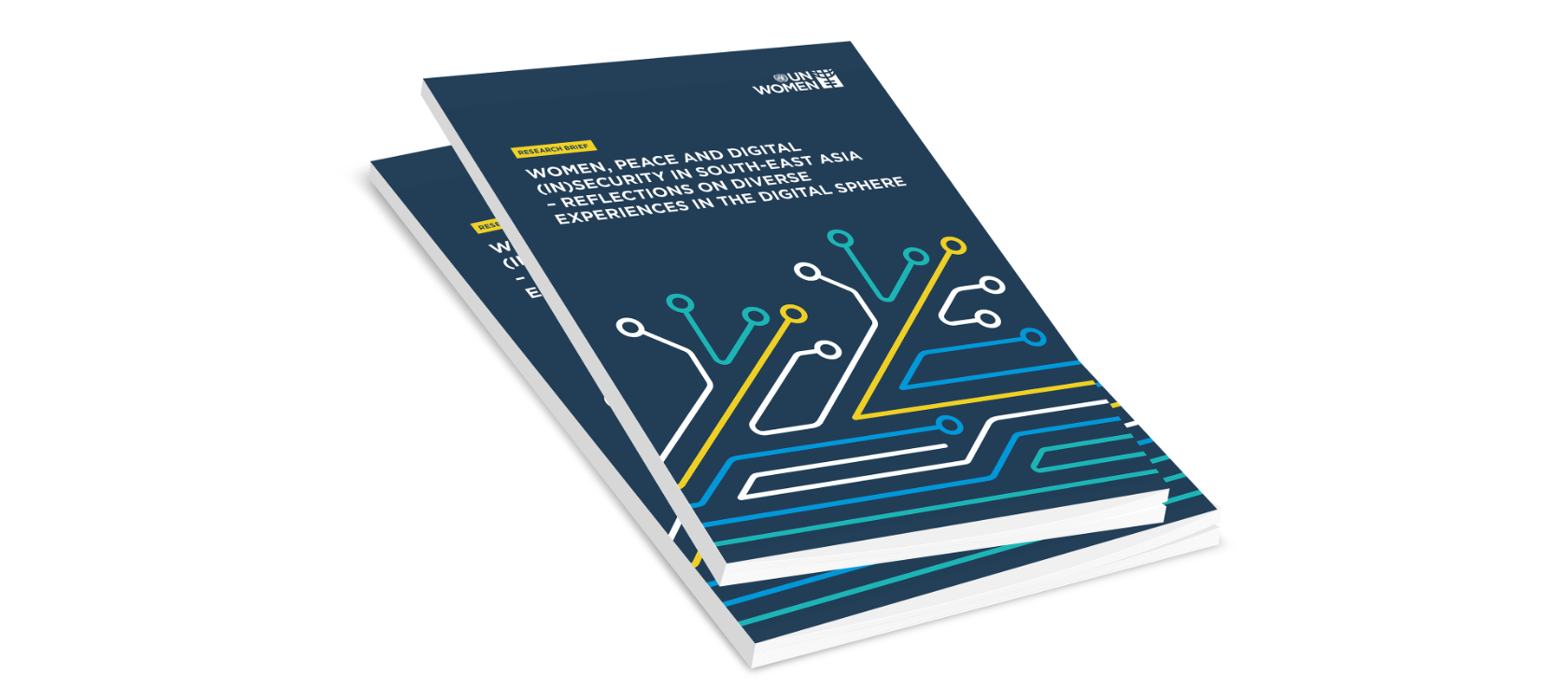UN Women research recommends strategies in South-East Asia to advance the Women, Peace and Security agenda in the digital space
Date:
[Press release]
For immediate release

Bangkok, Thailand – The systematic nature of online attacks to silence women’s voices and discredit their work poses a significant obstacle to advancing inclusive peace, gender equality and human rights across South-East Asia, according to new UN Women research.
Entitled Women, Peace and Digital (In)Security in South-East Asia – Reflections on Diverse Experiences in the Digital Sphere, the report examines technology-facilitated gender-based violence (TFGBV), cyber-enabled trafficking in women and other aspects of the digital landscape that have implications for gender-responsive and sustainable peace.
It reveals that digital security has emerged as a central priority for the Women, Peace and Security (WPS) agenda across South-East Asian nations, with the rapid rate of digitization making online spaces the new frontiers for conflict and violence.
“As the world evolves to meet emerging risks in cyberspace, the WPS agenda provides a solid foundation to advance safe and inclusive digital spaces for all, while also promoting women’s leadership in peace and security,” said Christine Arab, UN Women Regional Director for Asia and the Pacific.
“The report presents a compelling case for why cybersecurity and digital security laws, policies and strategies should be gender-responsive, be informed by principles underlying the WPS agenda, and adhere to international law and global commitments.”
UN Women has released the research during WPS Month, observed globally each October to coincide with the annual UN Security Council High-Level Open Debate on women’s meaningful participation and representation in peace and security processes.
The research was made possible by the support of the Australian Government, under the Cyber and Critical Tech Cooperation Program, and the Government of the Republic of Korea’s Ministry of Gender Equality and Family as part of the project Women, Peace and Cybersecurity: Promoting Women’s Peace and Security in the Digital World.
The report’s insights and recommendations aim to improve understanding of key cybersecurity concerns voiced by women in South-East Asia and to inform national, regional and global policies to address digital security risks for women activists, human rights defenders and public figures.
These concerns relate to different types of TFGBV, such as trolling, online hate speech and radicalization, disinformation and slander campaigns, data and privacy breaches, technology-enabled trafficking in persons, Internet shutdowns and content access restrictions.
The research finds that the implications of TFGBV are particularly severe in conflict zones and crisis-affected contexts due to the higher political stakes of real-life violence.
The use of TFGBV to silence women’s voices and discredit their work has had negative impacts on women’s civic engagement and peace efforts, with some choosing to disengage from their work due to feeling unsafe or threatened.
The report recommends developing strategies to tackle misogynistic content on digital platforms, including gendered hate speech and violent and extremist messaging, through improved accountability mechanisms across public and private sectors in compliance with countries’ legislative frameworks and their international commitments towards advancing women’s leadership, peace and security, and ending all forms of violence against women and girls.
It further recommends providing financial support to digital rights organizations and local women’s groups, to reach and enhance the digital literacy and cyber-resilience of marginalized women, women living with disabilities and LGBTQI+ groups.
Digital security-related considerations should also be integrated into the design, implementation and evaluation of regional and national action plans on WPS and other related policy frameworks, supported by effective monitoring of priorities at the intersection between digital security and international, national and human security.
This report complements research released in May 2024 by UN Women and the UN University Institute in Macau (UNU Macau) examining Artificial Intelligence and the Women, Peace and Security Agenda in South-East Asia and Cybersecurity Threats, Vulnerabilities and Resilience Among Women Human Rights Defenders and Civil Society in South-East Asia.
More information.
Contact: Montira Narkvichien, Regional Communications Adviser, UN Women Regional Office for Asia and the Pacific [ Click to reveal ]
Access the latest research: Women, Peace and Digital (In)Security in South-East Asia – Reflections on Diverse Experiences in the Digital Sphere